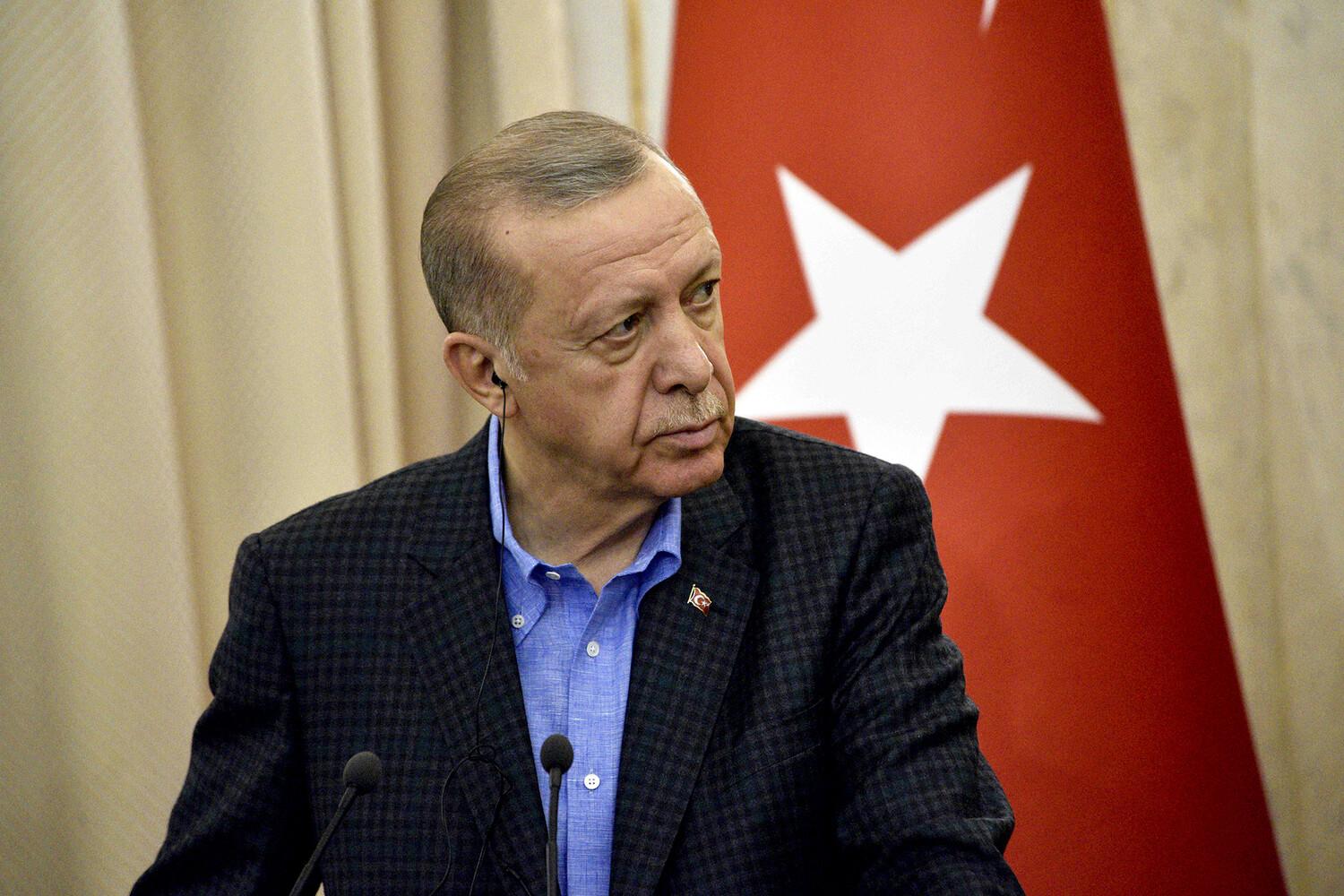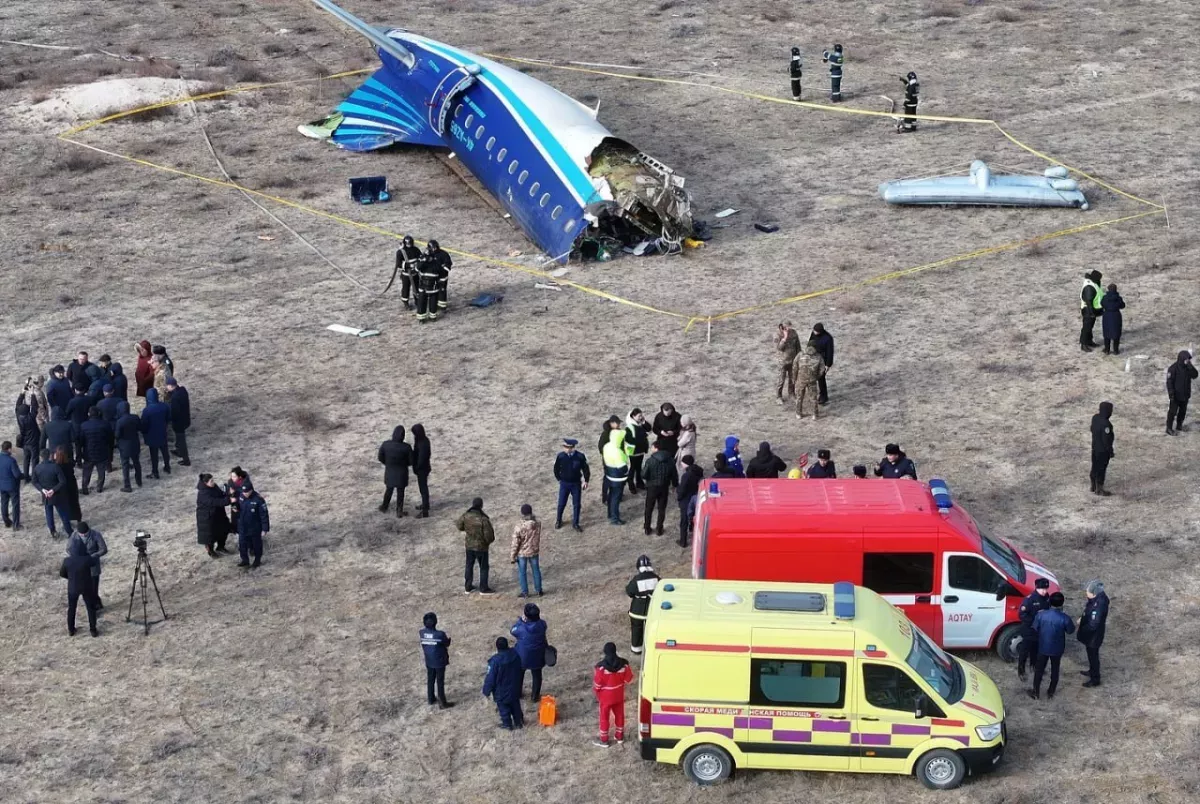Imperial phantoms vs Baku’s realpolitik Debunking Russian narratives on Azerbaijan-Türkiye ties
The information and analytical agency URA.RU, based in Yekaterinburg, has published an interview with Yevgeny Semibratov, Deputy Director of the Institute for Strategic Studies and Forecasts at the Peoples’ Friendship University of Russia (RUDN). Even without reading the full text, the intent behind the interview is clear from its headline alone: “Azerbaijan has turned away from Russia under Türkiye’s influence. What Erdoğan and Aliyev are planning in the South Caucasus.”
The piece goes on to state that Mr. Semibratov "explained" (URA.RU’s own phrasing) the essence of Türkiye’s growing influence over Azerbaijan. In his view, this has led to the following: “Baku is consistently distancing itself from Russia, and doing so as demonstratively as possible. Recep Erdoğan wants to take control of the entire South Caucasus. Baku and Ankara are even prepared to subjugate Armenia by force — something currently hindered by Yerevan’s tenuous, yet still valid, CSTO membership.”

Let us also cite other remarks by Semibratov, which abound in controversial and, to put it mildly, tendentious formulations: “Azerbaijan is demonstrating its intention to seek deeper integration with Türkiye, and in this regard, unfortunately, we will increasingly encounter cases where Baku escalates tensions with Russia over blatantly contrived pretexts”; “Baku is building a narrative within the country of a united Turkic world, with a subsequent shift under Ankara’s wing”; “Such overtures from Baku may ultimately lead to the Azerbaijani people becoming part of the Turkish nation.”
It appears that Semibratov genuinely believes what he is saying — and this is a serious problem when it comes to shaping public opinion within Russia itself. The interview presents a completely inadequate interpretation of the current state of Russian-Azerbaijani relations.
All the more concerning is the fact that Semibratov holds the position of deputy director at a respected academic institution. This naturally raises the question: is the worldview of students at the Peoples’ Friendship University of Russia — which ostensibly advocates for “friendship among nations” — being shaped by such analytical conclusions?
It is regrettable to state that the interview text clearly carries imperial overtones, rooted in a refusal to recognise Azerbaijan’s status as a powerful regional state that shapes its foreign policy solely based on its national interests.
Yes, Azerbaijan maintains allied relations with Türkiye. But does it lack such relations with Russia? It is obvious that one of the aims of Semibratov’s interview was to portray Azerbaijan as a dependent state that supposedly “provokes tensions with Russia over blatantly contrived pretexts” — and all this supposedly under Türkiye’s influence.
However, a natural question arises: when has official Baku ever deliberately escalated tensions with Russia? Has there ever been a situation in history where Azerbaijan acted to Moscow’s detriment “under Ankara’s diktat”?

Semibratov, as an example, suggests recalling Baku’s reaction to the crash of the Azerbaijan Airlines plane near Aktau. But what does Türkiye have to do with it? More importantly, what exactly was “wrong” about Baku’s response? The plane was shot down over Russian territory, resulting in the deaths of dozens of passengers. Has Moscow not yet provided official investigation results? Everyone already understands what happened in and over Grozny, where the fatal strike on the passenger airliner was fired.
If Mr Semibratov truly seeks an objective analysis of the situation, he should first and foremost rely on verified documentary facts. Otherwise, one might assume that his statements aim not to clarify, but to impose a predetermined interpretation on the Russian audience.
In that case, it is necessary to call things by their proper names: certain circles within Russian politics are deliberately playing on escalating Russian-Azerbaijani tensions.
Particularly alarming is Semibratov’s statement that when “Russian troops, after victory” in the war with Ukraine, “return to their districts, their permanent bases — this will serve as a reminder to our neighbours that Russia possesses a seasoned military force capable of carrying out any task. This is an additional argument for friendly neighbourly relations. I fear that with some of our neighbours, this is exactly the way to speak.”
What is this, if not a veiled threat? What kind of imperial complexes and inflated arrogance does this reveal?
Such statements clearly demonstrate the real objectives behind the activities of certain Russian “analysts” regarding the post-Soviet space.
These remarks unequivocally indicate that the biased anti-Azerbaijani and anti-Turkish narratives are being spread deliberately, with a clearly programmed goal — to create artificial tension in relations between Baku and Moscow.
Doesn’t all this point to the growing influence of the so-called “party of war” within Russian politics?








